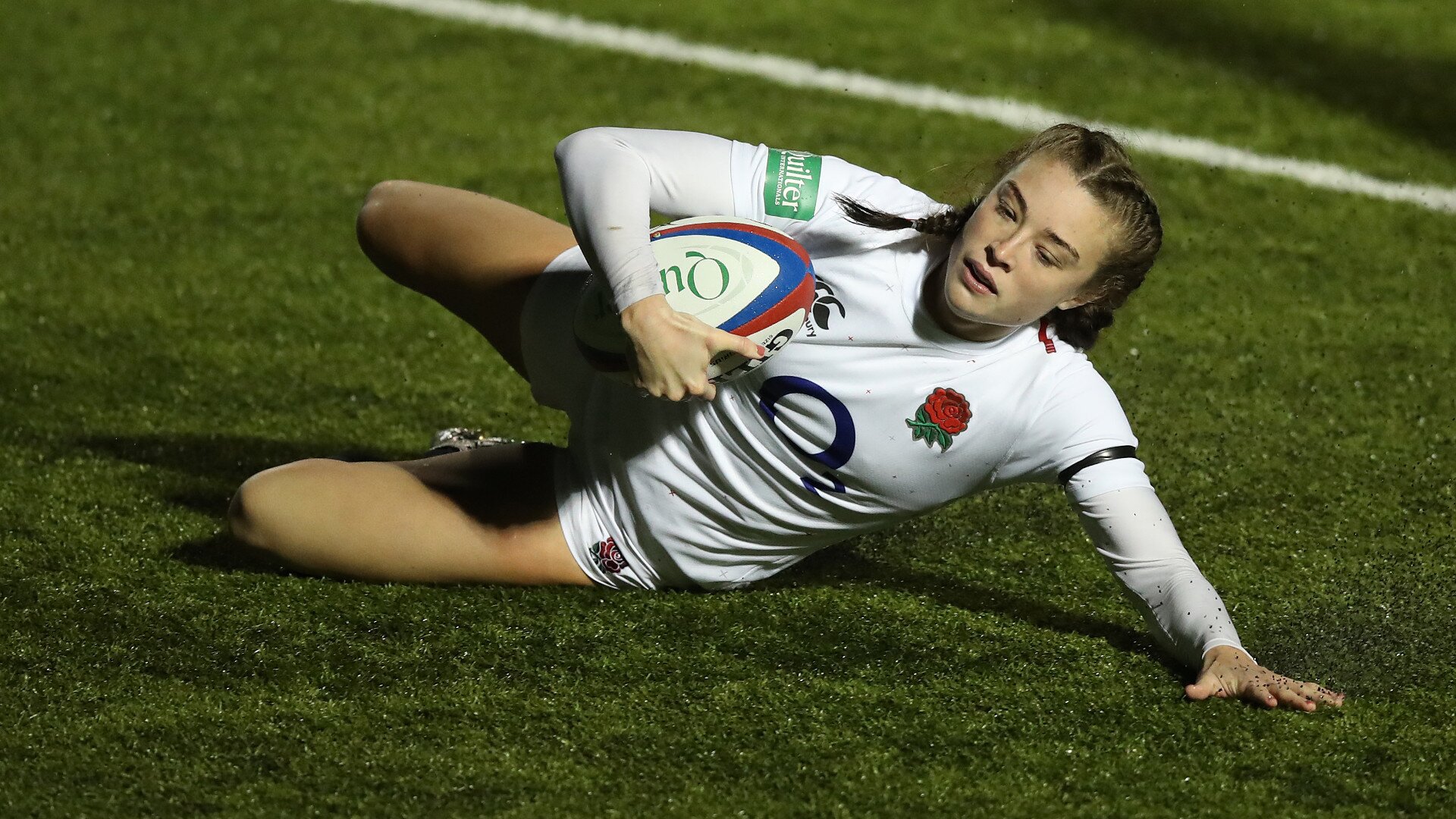Twenty-eight of England’s 35-woman Elite Player Squad (EPS) for the 2019 season are now professional.
The 35-player squad includes 28 full-time professionals, supplemented by seven EPS agreements, with players who will come into camps and England training, but not the full-time programme.
England Women’s head coach Simon Middleton has announced the squad today, saying: “The introduction of full-time contracts will take time to embed but will unquestionably help us to accelerate the development process. This is a huge opportunity and we recognise the expectation that comes with the investment.
“It is now down to us as a management and playing group to meet those expectations.”
The RFU announced in September that it would introduce women’s full-time contracts this season underlining its commitment to the long-term growth of women’s rugby. Under its women and girls strategy, the RFU plans to double the number of participants by 2021, increase the number of women’s teams by more than 75% to 800, the number of active women’s clubs to more than 400, and get more women involved in the sport as referees, coaches and volunteers.
Continue reading below…
RFU Head of Women’s Performance Nicky Ponsford added: “At England Rugby we want to be driving standards in women’s rugby through everything we do. Full-time contracts help to ensure we have the access to players to develop them and allow them and fulfil their potential.
“We look forward to continuing to work with the clubs in developing this group of players and continuing to grow the Tyrrells Premier 15s at a domestic level.”
Among the names announced are 2014 Women’s Rugby World Cup winners Katy Daley-Mclean, who earned her 100th cap during the Quilter Internationals in November, long-time captain Sarah Hunter, Marlie Packer, and Vicky Fleetwood. They are joined by 2017 World Cup finalists Sarah Bern, Rachael Burford, Vickii Cornborough, Abbie Scott and Lydia Thompson.
In addition, 2017 finalist Amy Cokayne will form part of the squad under an EPS agreement, allowing her to continue her commitments to the Royal Air Force alongside international rugby duties.
As announced last month, also bringing a wealth of experience are three players returning to 15s from the sevens programme, 2014 World Cup winners and 2017 finalists Natasha Hunt and Emily Scarratt join Jess Breach in the move back to the 15s setup.
There are six new names named in this year’s EPS, including five players who made their England debuts during the 2018 Quilter Internationals. Firwood Waterloo back-row forward Sarah Beckett, Loughborough Lightning centre Carys Williams and Gloucester-Hartpury centre Tatyana Heard have been awarded full-time contracts, while Ellena Perry, Wasps scrum-half Claudia Macdonald and uncapped Saracens prop Bryony Cleall are also named under the EPS agreements.
The squad comes together today at its new base Bisham Abbey National Sports Centre for January testing, before three-days of training get underway tomorrow ahead of the 2019 Women’s Six Nations which kicks off against Ireland in Dublin on Friday 1 February.
The RFU launched the Tyrrells Premier 15s in 2017 which saw the union invest £2.4 million in the new women’s domestic XVs competition with the aim to improve standards of the women’s game, as well as increase the talent pool available for selection for England in the future.


















































